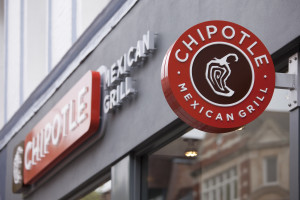Despite Chipotle’s challenges, “Food with Integrity” is an unstoppable trend

Companies like Chipotle offer hope that the food system can be changed
The past few months have been rough for Chipotle Mexican Grill to put it mildly. The popular restaurant chain has been hit with a series of foodborne illnesses, including E. coli, norovirus, and salmonella that sickened more than 500 people in 10 states. Chipotle also faces lawsuits from customers and investors and a federal criminal investigation. Their sales fell 14.6% in the fourth quarter of 2015, and the company’s stock price plunged 30% in 2015.
Unanswered questions
Chipotle’s problems have raised many questions. Why haven’t the sources of the all the outbreaks been found? How is it that a rare E. coli strain has been implicated in one of the outbreaks? This perplexed Dr. Jonathan Field, a professor of health policy at UCLA. “Everybody is scratching their heads,” Field told NBC News. Why was the norovirus outbreak in Boston that sickened 140 people so big? According to the Centers for Disease Control, less than 3% of such outbreaks sickened 80 or more people from 2009 to 2014. Norovirus is also not a common cause of illnesses at fast food restaurants like Chipotle. Why did Chipotle suddenly have outbreaks in several areas of the country when they had no problems in the past? Why is the Justice Department conducting a criminal investigation? Bill Marler, a food safety lawyer, told TakePart that he doesn’t remember a federal investigation into a food illness outbreak at a restaurant, calling it “weird.”
Corporate sabotage?
These questions have led to speculation that Chipotle had been the victim of corporate sabotage. Mike Adams, the “Health Ranger” at Natural News, wrote that the food illnesses at Chipotle are “the result of the biotech industry unleashing bioterrorism attacks against the only fast food company that has publicly denounced GMOs.”
(Interestingly, the USDA’s Food Inspection Service recently issued a warning about “insider threats” to the food industry aiming to inflict damage on companies.)
Was Chipotle the victim of sabotage? Experts such as Marion Nestle, professor of nutrition, food studies, and public health at New York University, don’t think so. Nestle attributes Chipotle’s problems to poorly designed and executed food safety procedures.
Darren Tristano, executive vice president of industry research firm Technomic, said that Chipotle’s commitment to serving local, “Food with Integrity” becomes “incredibly complex and difficult and challenging,” as the company grows. As a result, Tristano told the Washington Post that “the outbreak was almost bound to happen.”
Still, I wouldn’t be surprised if Chipotle were sabotaged. Supporters of industrial agriculture and GMOs hate Chipotle; they hated Chipotle’s videos such as “The Scarecrow” and “Farmed and Dangerous” that lampooned industrial agriculture. Chipotle’s commitment to non-GMO, organic, and locally produced foods has been very successful. It resonates with many people, particularly Millennials, and sets a higher bar for fast food that other companies such as Panera Bread are following. But Chipotle’s success is a huge threat to the entrenched industrial agriculture/factory farm system of food production.
Attacks by GMO supporters
That’s why Big Ag and GMO supporters—along with mainstream media outlets—have attacked Chipotle, particularly after the company announced last year that they had completed the transition to non-GMO food ingredients. Since then, the vitriol has escalated. Last fall, the Center for Consumer Freedom, an industry front group, launched a vicious “Chubby Chipotle” ad campaign showing an obese man who gained 40 pounds after regularly eating Chipotle burritos. A Bloomberg News article had a photo of someone in a hazmat suit holding a Chipotle burrito. Forbes columnist Henry Miller, who was recently implicated in a defamation case against French scientist Gilles-Eric Seralini, gleefully wrote about Chipotle’s “well deserved downward spiral.”
The attacks escalated, and then the food illness outbreaks happened. It’s easy to see why many people put the two together and came up with sabotage.
Trying to do the right thing
Regardless of the problems, I think Chipotle will bounce back, and they are working hard to do so. CEO Steve Els recently told investors that his company will “reduce the risk of this kind of outbreak from occurring again to zero” and would take “extraordinary measures” to do that. The company will also be launching a new campaign—that includes free burrito bowls—to encourage people to return to the restaurants.
Chipotle also has a loyal following, described cynically by the Washington Post as the “Chipotle cult,” which has remained loyal through the food illnesses. I see this on our Facebook page with hundreds of comments from people supporting Chipotle and their non-GMO commitment.
I also think Chipotle will succeed because they are part of a larger trend that is transforming our food system—from one based on toxic pesticides, GMOs, and factory farms to one based on regenerative, organic, and non-GMO practices that support human health and the environment. That trend is unstoppable. Companies like Chipotle give us hope that the food industry can be changed for the better. That’s why they deserve support in their efforts—along with many other businesses, organizations, and individuals who are working to build a food system that is safer, healthier, and more sustainable.
Chipotle is trying to do the right thing. It has had problems, has accepted responsibility, publically apologized, and taken steps to make sure similar problems don’t happen again. This could bring customers back, while their continued commitment to “Food with Integrity” could bring in many more.




